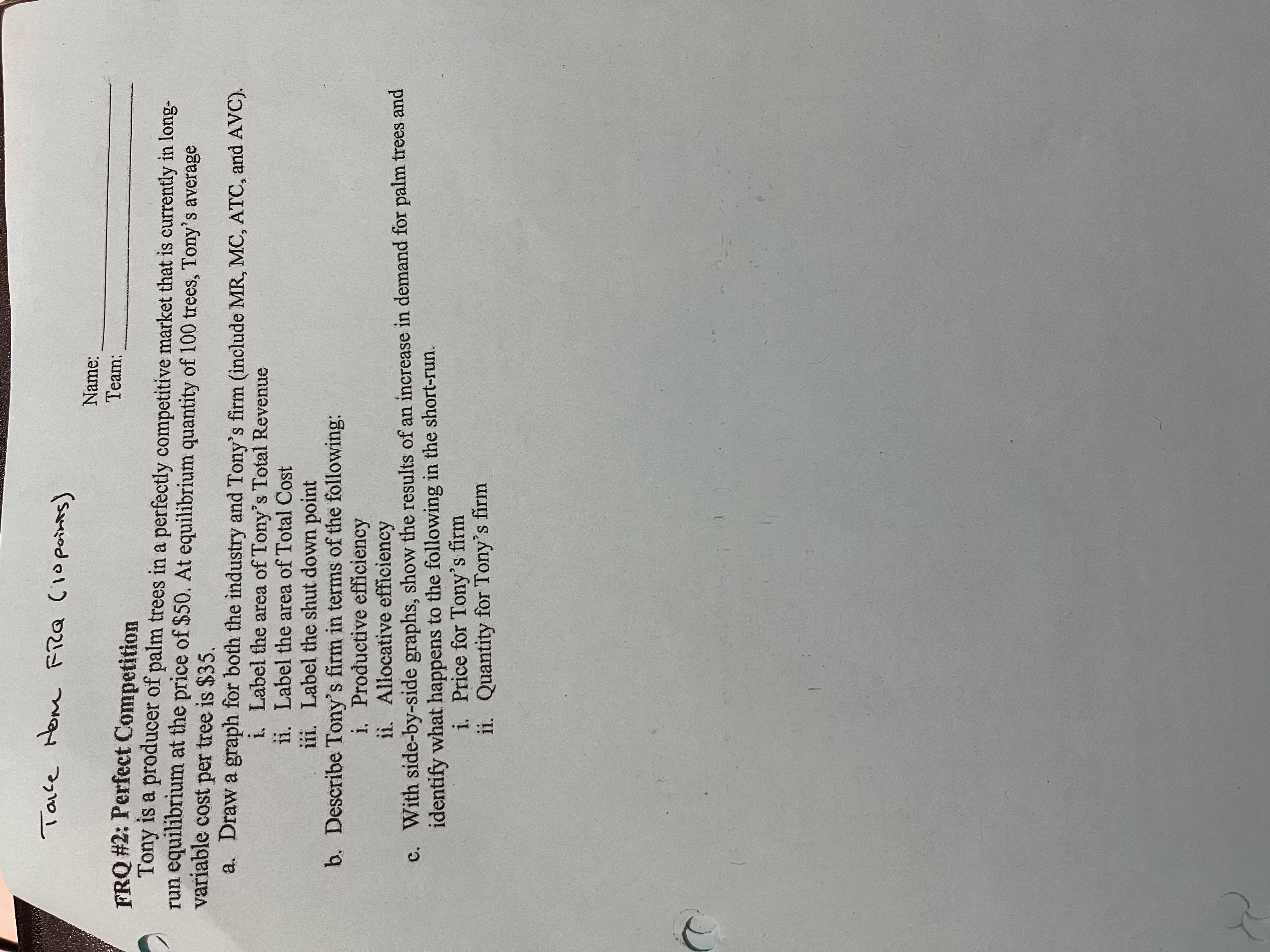Tony is a producer of palm trees in a perfectly competitive market that is currently in long-run equilibrium at the price of $50. At equilibrium quantity of 100 trees, Tony’s avera... Tony is a producer of palm trees in a perfectly competitive market that is currently in long-run equilibrium at the price of $50. At equilibrium quantity of 100 trees, Tony’s average variable cost per tree is $35. a. Draw a graph for both the industry and Tony’s firm (include MR, MC, ATC, and AVC). i. Label the area of Tony’s Total Revenue ii. Label the area of Total Cost iii. Label the shut down point b. Describe Tony’s firm in terms of the following: i. Productive efficiency ii. Allocative efficiency c. With side-by-side graphs, show the results of an increase in demand for palm trees and identify what happens to the following in the short-run. i. Price for Tony’s firm ii. Quantity for Tony’s firm.

Understand the Problem
The question involves analyzing Tony's palm tree business in a perfectly competitive market, requiring students to draw relevant graphs and analyze efficiency and responses to market changes.
Answer
P=MC=ATC at equilibrium; demand increase raises price and output short-term.
In long-run equilibrium, Tony’s firm operates efficiently, where P = MC = ATC. An increase in demand raises the price temporarily, increasing output to where the new MR = MC.
Answer for screen readers
In long-run equilibrium, Tony’s firm operates efficiently, where P = MC = ATC. An increase in demand raises the price temporarily, increasing output to where the new MR = MC.
More Information
In perfect competition, long-run equilibrium ensures both productive (minimizing ATC) and allocative efficiency (where P=MC). A demand increase leads to short-run economic profits, attracting new entrants and eventually restoring long-run equilibrium.
Tips
Be careful when distinguishing between productive and allocative efficiency in firms; they may coincide in perfectly competitive markets but have different specific conditions.
Sources
- Free response question (FRQ) on perfect competition - Khan Academy - khanacademy.org
AI-generated content may contain errors. Please verify critical information